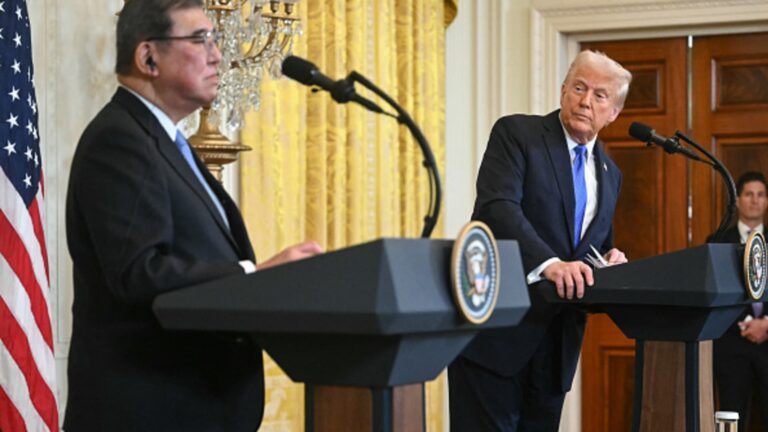Trump Says Nippon Will Invest Heavily in U.S. Steel, Not Buy the Company
In a significant turn of events in the American steel industry, former President Donald Trump recently announced that Nippon Steel Corporation, one of Japan’s largest steel manufacturers, plans to invest heavily in U.S. Steel Corporation. While speculations around a potential acquisition had been circulating, Trump clarified that Nippon will not be buying U.S. Steel but rather focusing on strategic investments. This decision comes amid a backdrop of America’s ongoing efforts to revitalize its manufacturing sector and bolster domestic steel production.

The Rationale Behind Investment
The announcement stems from a broader context of revitalization in the U.S. manufacturing sector. The American steel industry, which lost more than 400,000 jobs between 1970 and 2019, stands to benefit significantly from foreign investments like that of Nippon Steel. The global demand for steel continues to rise, with projections suggesting that world steel consumption will grow from 1.87 billion metric tons in 2022 to 2.09 billion metric tons by 2025. This growth represents a healthy market opportunity that companies like Nippon Steel are eager to tap into.
Furthermore, the infrastructure bill passed in 2021, allocating $1.2 trillion for U.S. infrastructure upgrades, creates an additional incentive for steel manufacturers to invest. Steel is a critical component in construction, and an influx of domestic production will help meet the heightened demand without relying solely on imports.

Trump’s Remarks and Their Implications
Trump’s announcement indicates a shift in strategy for the U.S. manufacturing industry. During his presidency, he emphasized the importance of "America First" policies, aiming to reduce foreign dependence and revitalize American jobs. According to the American Iron and Steel Institute, the steel industry employs approximately 140,000 Americans directly and supports over 1 million jobs in related sectors. Nippon’s decision to invest rather than acquire suggests a collaborative approach to strengthening the U.S. steel production landscape.
Moreover, Nippon Steel’s expertise in advanced manufacturing technologies and sustainable practices may bring valuable insights to U.S. Steel’s operations, potentially leading to innovations that can drive efficiency and reduce waste. As sustainability becomes a crucial consideration for manufacturers worldwide, such collaborations could also help U.S. Steel align with Greenhouse Gas (GHG) reduction targets.

Economic Impact and Next Steps
The economic implications of this investment are significant. According to the Bureau of Economic Analysis, the steel industry represents a $30 billion sector in the U.S. economy. Increased investments from multinational companies can lead to job creation, improved wages, and a boost in local economies. In Illinois, for example, the steel industry supports over 38,000 jobs, and new investments could lead to expanded operations and greater community engagement.
To further capitalize on this momentum, it will be essential for U.S. Steel and Nippon to articulate a clear plan regarding the investment’s focus areas—whether in new technologies, increased production capacity, or advancements in sustainability.
The Future of U.S. Steel
As Nippon Steel embarks on this investment journey, the future of U.S. Steel looks promising. Industry analysts remain optimistic, noting that foreign investments can lead to modernization of facilities and the adoption of state-of-the-art technologies.
While Nippon might not be acquiring U.S. Steel, the investment it makes could integrate a wealth of knowledge that enhances U.S. Steel’s competitiveness in the global market. In fact, a recent industry report indicated that steel from innovative producers, like Nippon Steel, could have a significant impact on reducing costs and improving profit margins for American manufacturers.

Conclusion
Trump’s announcement regarding Nippon Steel’s investment in U.S. Steel marks a pivotal moment in the American steel industry. With a focus on innovation and collaboration rather than acquisition, this strategy could lead to revitalization and growth. By integrating global expertise with local production, both Nippon and U.S. Steel have the potential to reshape the American steel landscape and drive towards a more sustainable future.
As we continue to monitor this situation closely, it is evident that the road ahead will not only enhance the domestic steel industry but also contribute to U.S. economic resilience in an increasingly competitive global market.


